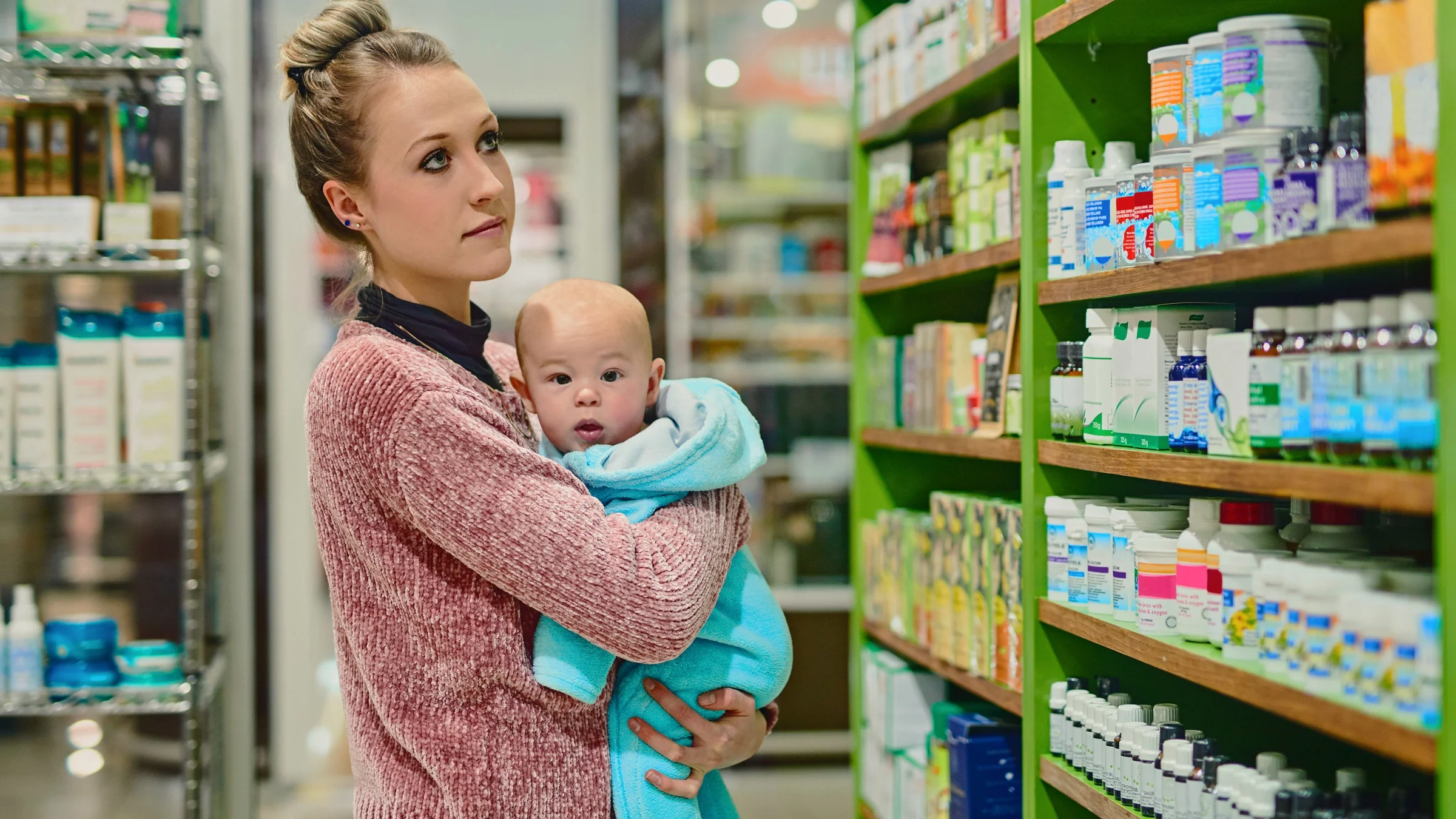Key takeaways:
Postpartum probiotics may be helpful for preventing and treating mastitis (inflamed and sore breasts).
It’s possible that probiotics could help with postpartum depression, constipation, and weight loss. But more evidence is needed before we can say for sure.
Probiotics are generally considered safe to use after childbirth, including while breastfeeding. Still, talk to a healthcare professional before starting one.
When you hear the word “bacteria,” you might think of an infection. But you actually have trillions of helpful microorganisms — like bacteria, yeast, and fungi — that live in and on your body. Together, these microorganisms are called your microbiome. And your microbiome plays an important role in your health.
So, where do probiotics come in? Probiotics are live microorganisms that you swallow, like in yogurt or as a dietary supplement. And though we’re still learning about postpartum probiotics, it’s possible that they could have some benefits. Here’s what we know so far.
What are probiotics?
Probiotics are live microorganisms that may have health benefits when you swallow them.
When you take a probiotic, they join the community of organisms that naturally exist in your gut (your gut microbiome). Foods and drinks like yogurt, kimchi, and kombucha contain probiotics. But probiotics also exist as dietary supplements and in beauty products.
We don’t know exactly how probiotics impact your health. But it’s possible that they support gut health and encourage “good” bacteria to grow. They may also help your body make useful vitamins, hormones, and other substances.
Let’s take a look at four ways probiotics might play a role in postpartum health.
Probiotics for postpartum constipation
Constipation is common in the first 6 weeks after giving birth, affecting about 1 in 6 women. For some people, taking probiotics could help to relieve constipation. But there isn’t a lot of evidence yet to say if probiotics work for constipation, especially after childbirth.
And be aware: Sometimes, probiotics can actually cause constipation when you first start taking them. So there’s a chance that probiotics could make your constipation worse for a week or two.
Probiotics for mastitis
Mastitis is when your breast gets inflamed and sore. It’s common during breastfeeding.
Dealing with postpartum depression? Here’s how to get help for postpartum depression, including therapy, medications, social support, and more.
What are probiotics? Check out our GoodRx guide to probiotics, including what the science has to say about health benefits.
Should you take a postnatal vitamin? It depends. Here’s what you need to know.
According to the Academy of Breastfeeding Medicine (ABM) probiotics may be worth considering for preventing — and even treating — mastitis. Probiotics might be best postpartum when they contain these strains:
Limosilactobacillus fermentum
Ligilactobacillus salivarius
But there’s not enough evidence to give a firm recommendation. More research will help us learn what types of probiotics work the best.
Probiotics for postpartum depression
Postpartum depression (PPD) is a mental health condition that affects your mood, thoughts, and behavior. There’s some evidence that probiotics could help to treat PPD.
In a 2022 meta-analysis and review, researchers found that some women felt less depressed when taking a probiotic containing Lactobacillus rhamnosus HN001. But the results weren’t very clear. There was also some evidence that giving probiotics to colicky babies helped them to cry less — which helped the mom’s mood get better too.
The takeaway? We can’t say for sure whether probiotics help with PPD, but it could become an option in the future. In the meantime, therapy and medications are still the best options for treatment.
Probiotics for postpartum weight management
Many women lose their pregnancy weight in the first couple months after childbirth. It’s possible that probiotics could help with that weight loss — but the evidence is mixed.
Some studies have found that probiotics don’t have an effect on weight loss. Other studies found that they do. So far, probiotics seem to be the most effective when they contain the following species:
Lactobacillus gasseri
Lactiplantibacillus plantarum
Bifidobacterium
Is taking probiotics safe while breastfeeding?
Taking probiotics is generally considered safe if you’re breastfeeding. But talk to a healthcare professional first. They can help you understand whether probiotics are right for you, as well as what other foods and medications to avoid if you’re nursing.
Do probiotics have benefits during pregnancy?
Taking probiotics during pregnancy seems to be safe for many people. But so far, it’s not totally clear whether they actually have any benefits.
There’s some evidence that probiotics could help with:
Treating pregnancy symptoms like nausea, vomiting, and constipation
Preventing gestational diabetes
Preventing preterm labor
Preventing or treating Group B strep in your vagina
You can learn more about these topics and more in our GoodRx guide to probiotics and pregnancy.
And remember: If you’re pregnant, talk to a healthcare professional before starting any supplements — including probiotics. They can help you weigh the potential benefits and risks.
The bottom line
Probiotics after pregnancy may potentially help with mastitis, constipation, mood, and more. But even though probiotics seem to be safe for many people, it’s not clear how well they work.
If you’re thinking about taking a probiotic, talk to your OB-GYN or another healthcare professional. They can help you understand the pros and cons of taking a probiotic and whether it could be worth it for you.

Why trust our experts?


References
Álvarez-Arraño, V., et al. (2021). Effects of probiotics and synbiotics on weight loss in subjects with overweight or obesity: A systematic review. Nutrients.
American Cancer Society. (2022). Mastitis.
American Pregnancy Association. (n.d.). Probiotics during pregnancy.
He, Y., et al. (2022). Efficacy of probiotic compounds in relieving constipation and their colonization in gut microbiota. Molecules.
Liu, A. T., et al. (2021). Probiotics improve gastrointestinal function and life quality in pregnancy. Nutrients.
March of Dimes. (2024). Group B strep infection.
MedlinePlus. (2023). Losing weight after pregnancy.
Mitchell, K. B., et al. (2022). Academy of breastfeeding medicine clinical protocol #36: The mastitis spectrum, revised 2022. Breastfeeding Medicine.
National Institute of Environmental Health Sciences. (2024). Microbiome. National Institutes of Health.
Paladine, H. L., et al. (2019). Postpartum care: An approach to the fourth trimester. American Family Physician.
Sheyholislami, H., et al. (2021). Are probiotics and prebiotics safe for use during pregnancy and lactation? A systematic review and meta-analysis. Nutrients.
Trifkovič, K. Č., et al. (2022). Efficacy of direct or indirect use of probiotics for the improvement of maternal depression during pregnancy and in the postnatal period: A systematic review and meta-analysis. Healthcare.










